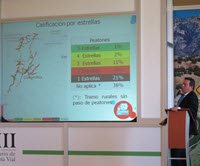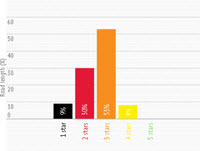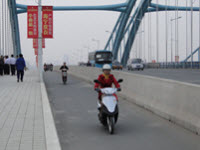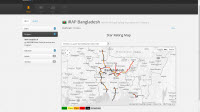iRAP has been fortunate to benefit from the support of a number of volunteers who have graciously shared their time, expertise and enthusiasm for road safety.
We’ve recently been recognising their valuable contributions to our efforts to save lives with the ‘5-star volunteer’ award. The volunteers recognised are:
- Emily McLean, who volunteered in Vietnam.
- Nana Soetantri, who volunteered in Indonesia.
- Morgan Fletcher, who volunteered in Mexico.
- Adam Ritzinger, who volunteered in the Philippines.
- Gina Waibl, who volunteered in Bangladesh.
- Nicole Borkowsky, who volunteered to help build our quality systems.
We also appreciate that volunteers’ home organisations were supportive of the initiative.


























